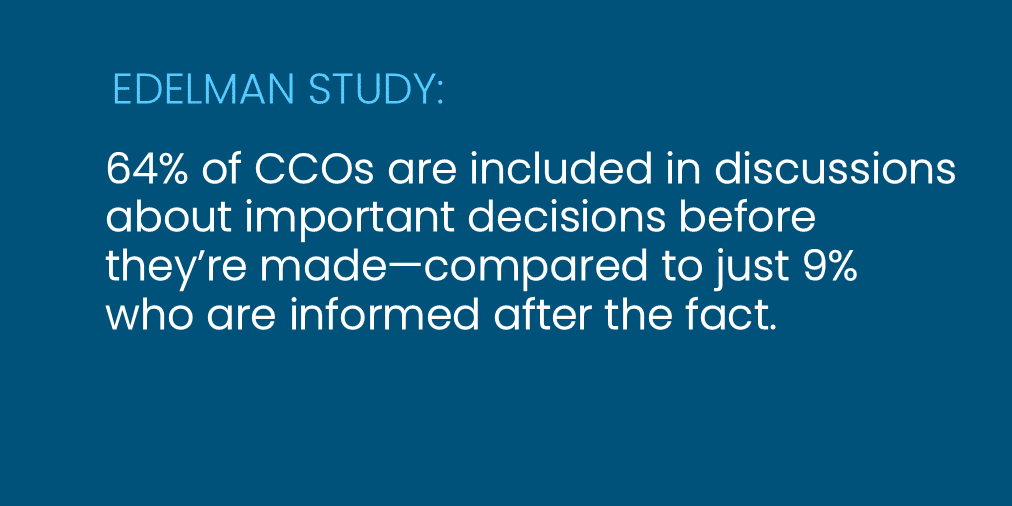
Chief communications officers increasingly play a strategic role in major business decisions: Edelman
The recently released Edelman’s Future of Corporate Communications study found that half of chief communications officers (CCOs) consider themselves to be strategic advisors to the business leaders in their organization. This compared to little over one-third in 2021. The study notes, “CEOs and Boards have awakened to the value communications can and must provide, and they’re pushing communications leaders to operate as a strategic partner to the enterprise.”
The best communications pros have excellent business sense. They understand what drives their business, have a good grasp of the financials, and align communications programs around their organization’s strategic initiatives.
Similarly, forward-thinking CEOs are thoughtful about the communications ramifications of their decisions—good and bad. Most value having a trusted comms professional who can help them think through the timing of announcements and better understand the potential ways their actions might be interpreted by their various stakeholders. “The modern information ecosystem and rise of public dialogue around key societal and environmental issues has kickstarted enormous mindset and cultural shifts on the part of executives and their communications partners,” according to the study.
One sign that comms leaders are viewed as a partner on strategy is that they are providing input before decisions are made. The Edelman study found that 64% report being included in discussions about important decisions before they are made compared to just 9% who are informed after the fact. Comms leaders are also spending significant time (one-fifth or 18% of their time) counseling business leaders on non-communications topics. This is a sign that their role guiding both internal communications and corporate reputation has widened.
In fact, while in prior Edelman surveys the most important communications function had been media relations followed by employee engagement and brand reputation, the most recent survey saw media relations fall to the third spot, according to what Radina Russell, Edelman’s US Corporate Practice Chair & General Manager, told the For Immediate Release podcast. Employee engagement moved up to #1 and brand reputation to #2. Priorities are changing: ”Communications leaders who are looking to the future tell us they expect employee engagement and brand reputation to be a key function of their role, displacing some traditional public relations remits from the top. In years past, more tactical functions, such as media relations were primary indicators of success.”
Interestingly, thought leadership remained in the #4 spot. Social media engagement, which had been in the #5 spot, dropped to #9, and stakeholder engagement moved up from #10 to #6.
And while political attacks on ESG in the U.S. may lead to a shift in nomenclature, most CCOs anticipate continued engagement around many key issues. This may be because employees are demanding it. This chart from an early release of the Edelman study shared on FIR points to employees as among the most important stakeholders pushing their organizations on key issues.

Source: The Future of Corporate Communications, Edelman, September 2023
For a more detailed discussion of this study, listen to an in-depth interview with Russell on the FIR podcast.
While the Edelman study did not provide specific insight into the financial services industry, it still has important lessons for fincom leaders. In an industry where a firm’s pristine record is critical for trust and where wrongdoing, including regulatory investigations or SEC settlements, can be a significant headwind, communications professionals must have a seat at the table in order to proactively support corporate reputation.
Subscribe.
Receive the latest news and insights from Lowe Group.